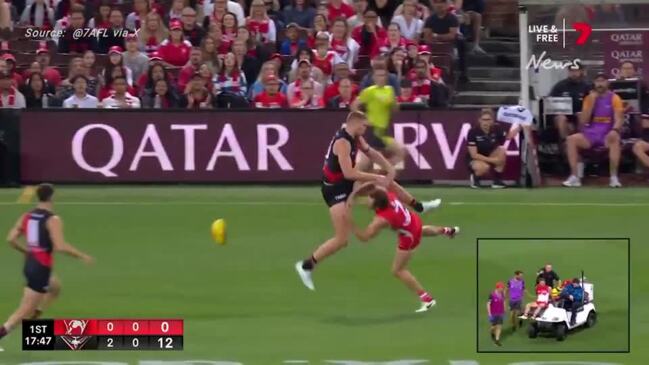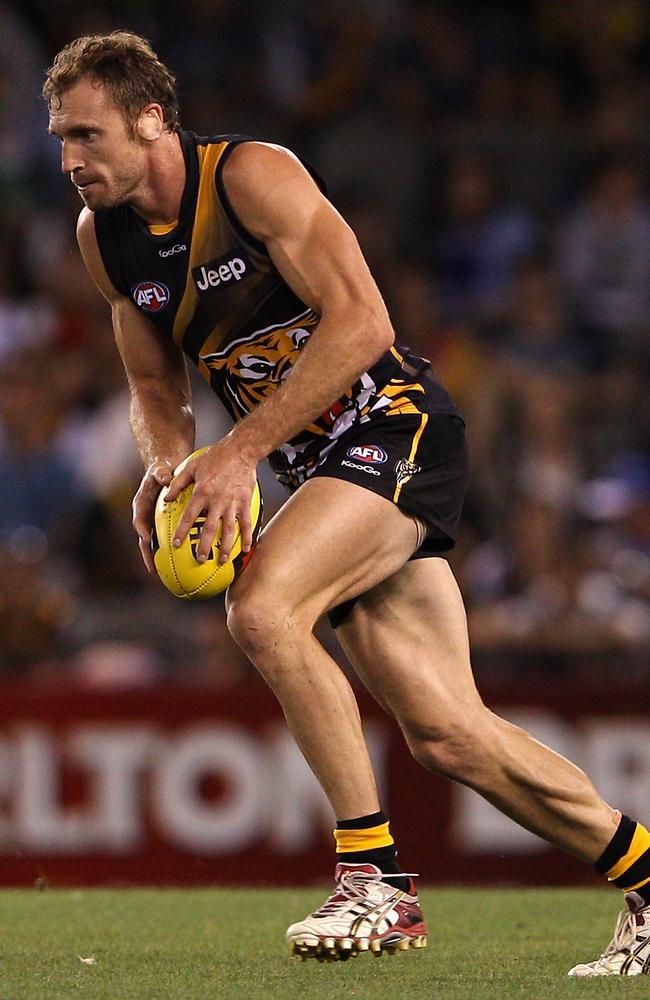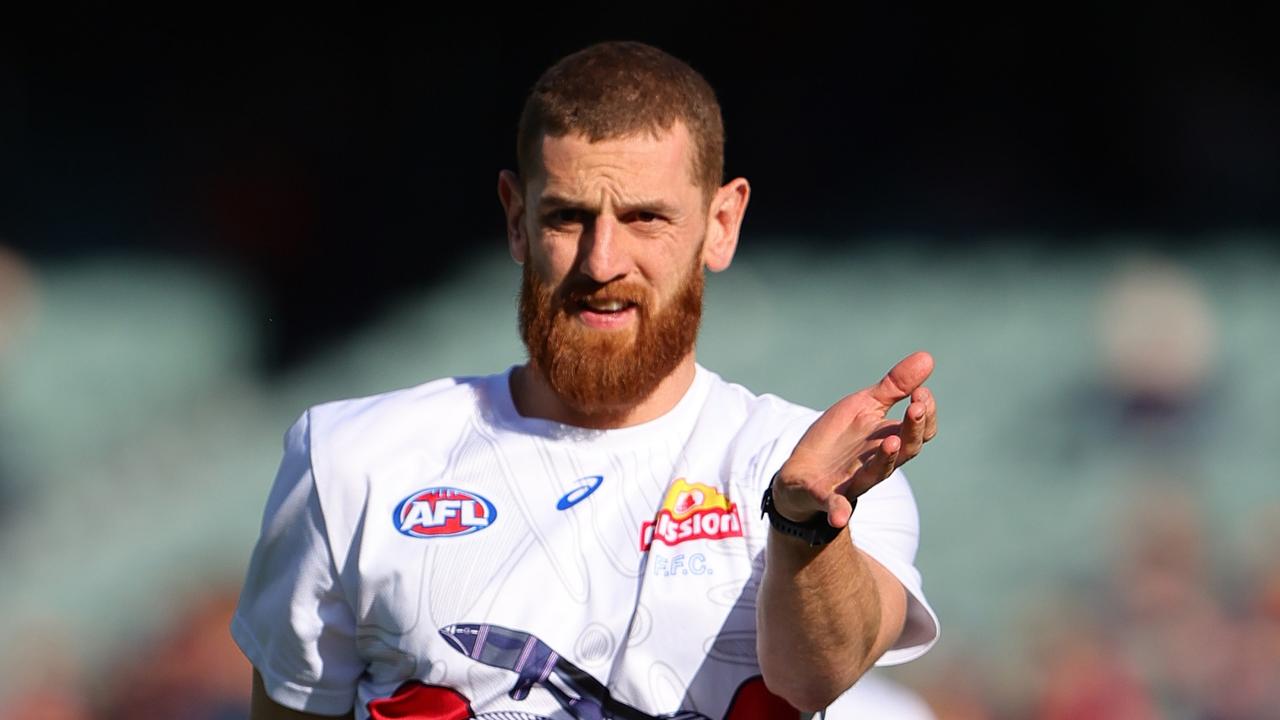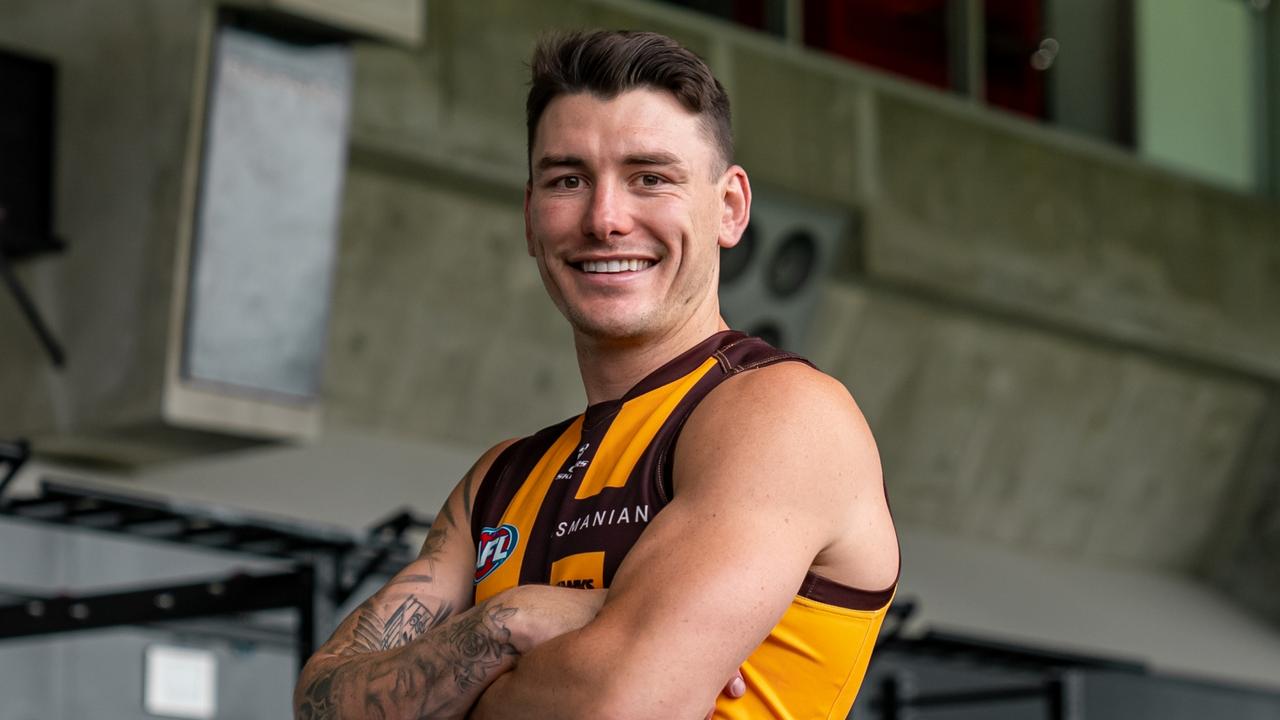The AFL responds to coroner’s report into the death of former Richmond player Shane Tuck
The AFL has already put into place plans to limited contact training sessions at clubs – but will the league action all of the coroner’s concussion recommendations? Here’s the latest.

AFL News
Don't miss out on the headlines from AFL News. Followed categories will be added to My News.
The AFL is still considering a recommendation to appoint independent doctors at all matches in the wake of a coroner’s report into the death of former Richmond player Shane Tuck.
But league officials have planned to limit contact training sessions at clubs, having already banned combat boxing and sparring sessions.
The league confirmed on Tuesday that it had provided a written response to Victorian coroner Judge John Cain, who in December released his findings into Tuck’s death.
Tuck was diagnosed with chronic traumatic encephalopathy (CTE) after taking his own life in July 2020, aged 38.
Judge Cain said in December that it was accepted that Tuck had received repeated head knocks both during his 173 game AFL career with Richmond and while competing as a professional boxer, with the coroner making a series of recommendations to help prevent similar cases in future.
In its formal response, the AFL said it was “currently considering” one of the key recommendations to appoint “independent doctors to attend all AFL and AFLW games to assist club doctors in the assessment of a player for suspected or actual head injury”.

The league noted that it already appointed independent doctors to attend AFLW matches and that it was “currently liaising with contact sports globally and considering other matters to identify best practice” for having independent doctors work alongside club doctors.
The AFL confirmed it had already implemented some of the other recommendations of the coroner’s report, including employing concussion spotters in the ARC who had the power to have an AFL or AFLW player removed from the field for a comprehensive concussion assessment.
Plans have also been made to limit contact training sessions at clubs in a bid to prevent further head knocks, while the league noted it was also implementing “various recommendations addressing education on concussion and repeated head trauma” for AFL players, staff and community footballers.
In a statement, the league said it was committed to a range of concussion-related programs and initiatives.
“The AFL continues to invest in, and support, research into concussion and repeated head trauma, including supporting the use of instrumented mouthguards by players, encouraging brain donation, and investing in the AFL Brain Health Initiative longitudinal research program,” AFL General Counsel Stephen Meade said.
“On behalf of the AFL, we reiterate our deepest sympathies to the Tuck family on Shane’s untimely passing in 2020 and their immense contribution to research into concussion and head trauma in Australian football.”





